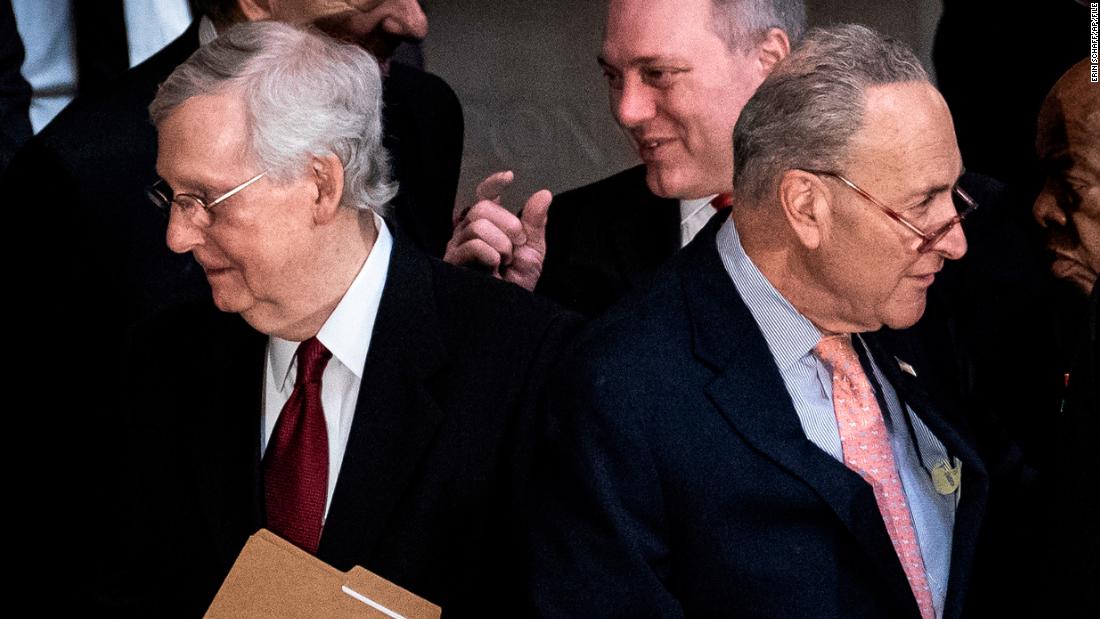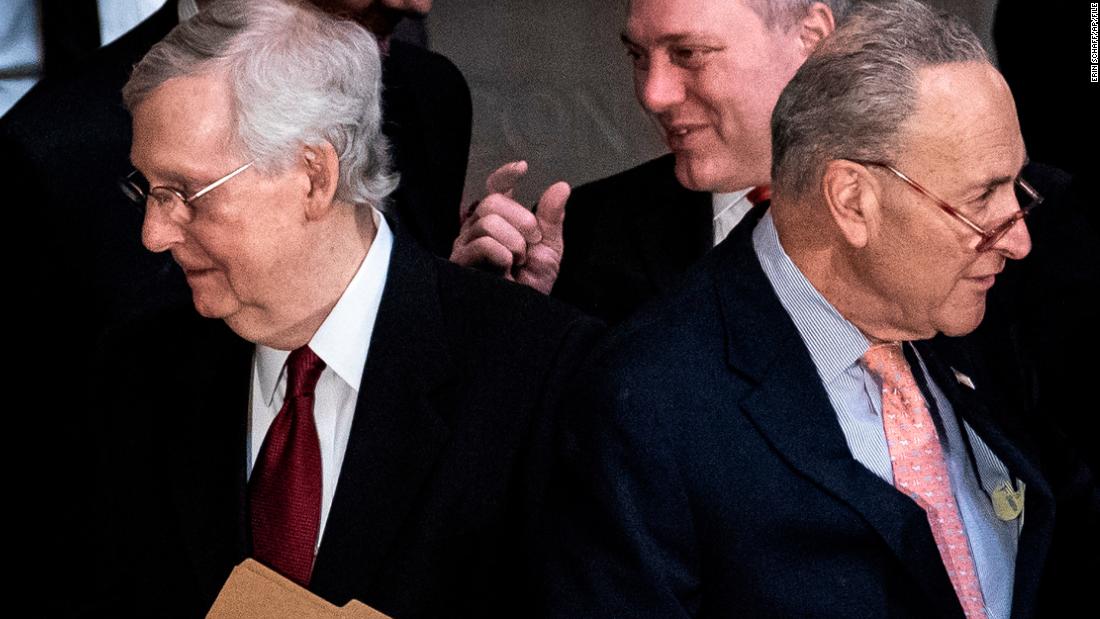[ad_1]

Senate Majority Leader Mitch McConnell said there would be no further votes in the Senate Monday as negotiations continue into the night to reach a bipartisan deal on what is likely to be the most significant legislative response to fallout from the pandemic so far.
Lawmakers have already passed two other major legislative packages in response to the outbreak, and the current legislation is being referred to as “phase three” in the legislative response.
But coming to a deal on a package that could cost as much as $2 trillion has been trickier. The inability to reach and vote on a deal by Monday evening — let alone by the Senate’s self-imposed weekend deadline — has underscored a tense divide between Republicans and Democrats.
“We will not be having any votes tonight,” McConnell said Monday evening on the Senate floor — hours after Senate Democrats had lined up against a second procedural vote to move legislation forward.
McConnell signaled this could drag on until at least the middle of the week. He took the procedural steps to set up another vote as late as Wednesday to consider the stimulus plan. In reality, however, if there’s a deal between Minority Leader Chuck Schumer and the White House, a vote could happen as soon as Tuesday.
White House legislative director Eric Ueland told reporters that Treasury Secretary Steven Mnuchin and Schumer are staying in the Capitol Monday to hammer out an agreement. The talks could go late.
Some GOP senators said Monday that the list of differences has narrowed.
“The list is getting shorter, but we aren’t going to have a deal today… Even if they got a deal late tonight, there wouldn’t be time to line it up and vote on it, so we will be here tomorrow,” Sen. John Cornyn of Texas said.
The vote on Monday, like the vote on Sunday, was a procedural attempt to limit debate on a shell bill that McConnell is using as a placeholder until negotiators reach a consensus deal. If it had succeeded, it would have cleared the way for the Senate to set up a final vote on a stimulus deal.
Republicans have been urging swift passage, especially after coronavirus struck one of their own and led two others to go into self-quarantine over the weekend.
Senate Majority Whip John Thune criticized Democrats for holding things up by trying to add more to the bill.
“If they could get the list narrowed down to the handful of items that really need to be negotiated, that would be great. But I think the Dems consistently are bringing new things, you know, new asks and demands in, and so much of their agenda, like I said, has nothing to do with coronavirus. They want to achieve a lot of their wish list through this crisis, which is really unfortunate,” the South Dakota Republican said.
That frustration is now coming from both sides of the aisle.
One key holdup appears to still be roughly $500 billion in funds for loans and loan guarantees for distressed companies, states and localities without enough guidelines or oversight to satisfy Democrats. They want to ensure that any bailout for large companies will primarily benefit workers. But pushback from Democrats has centered on not only the substance of the legislation, but on the process that Republicans used to come up with it as well, arguing that they were locked out of negotiations at the start.
Senators have been working day and night to negotiate a deal, but despite marathon negotiations, lawmakers missed their own deadline of wrapping up legislation before the end of the weekend. The scale of the package — which has grown by over a trillion dollars over the course of several days — underscores the recognition of the urgency brought on by the accelerating spread of the coronavirus pandemic that has all but shuttered the American economy over the last week.
Schumer struck an optimistic tone ahead of Monday afternoon’s procedural vote that a bipartisan deal could be reached shortly.
“We are very close to reaching a deal. Very close. And our goal is to reach a deal today and we’re hopeful, even confident, that we will meet that goal,” he said
Schumer also signaled that once a deal is reached, the Senate could move quickly to hold a final vote.
“Once we have an agreement that everyone can get behind we’re prepared to speed up the consideration of that agreement on the floor,” he said.
McConnell harshly criticized Democrats in his own remarks ahead of the vote, arguing that they are trying to push through unrelated priorities and are holding up a deal as a result.
“The markets are tanking once again because this body can’t get its act together,” he said. “This has to stop,” McConnell said, adding, “The country is out of time.”
This story has been updated with additional developments Monday.
CNN’s Kristin Wilson and Phil Mattingly contributed to this report.
[ad_2]
Source link

